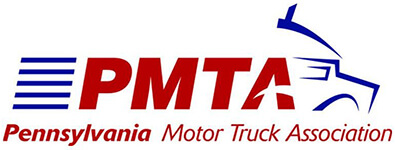FMCSA Launches New Pilot Programs to Improve Driver Quality of Life
WASHINGTON, D.C. – U.S. Transportation Secretary Sean P. Duffy announced the launch of two bold new pilot programs designed to improve the working conditions and quality of life for professional truck drivers across the country. The Federal Motor Carrier Safety Administration (FMCSA) will oversee both programs, which focus on providing drivers with greater flexibility in hours-of-service (HOS) regulations while maintaining the highest commitment to roadway safety.
“Truck drivers are the backbone of our economy, and we owe it to them to explore smarter, data-driven policies that make their jobs safer and more enjoyable,” said Secretary Duffy. “These pilot programs will help identify real solutions for America’s drivers without compromising safety.”
Split Duty Period Pilot Program
Under current HOS rules, commercial drivers operate within a 14-hour “driving window” that begins once they start their workday. The Split Duty Period pilot will allow participants to pause this window for a minimum of 30 minutes and up to three hours.
The goal is to give drivers more control over their schedules while reducing fatigue by allowing for meaningful breaks at times when they are most needed. FMCSA will evaluate whether this increased flexibility can help drivers better manage rest without negatively affecting safety outcomes.
Flexible Sleeper Berth Pilot Program
Another area of focus is the flexibility of sleeper berth requirements. Currently, drivers may split their mandatory 10 hours of off-duty rest into “8/2” or “7/3” segments. The new pilot program will test additional configurations, including “6/4” and “5/5” splits.
FMCSA researchers will analyze how these alternative rest schedules impact driver alertness, fatigue, and overall safety performance. If successful, these changes could offer drivers a wider range of rest options, allowing them to tailor schedules to their personal needs while still protecting the motoring public.
Part of the Pro-Trucker Package
These pilot programs are key components of the Department of Transportation’s Pro-Trucker Package, unveiled in June by Secretary Duffy in support of President Trump’s Executive Order 14286, Enforcing Commonsense Rules of the Road for America’s Truck Drivers.
The package represents a comprehensive effort to modernize driver support and includes:
- Expanded investments in truck parking, addressing one of the most persistent challenges faced by drivers.
- Modernized driver resources, ensuring better access to safety, health, and compliance tools.
- Regulatory reforms, eliminating outdated “one-size-fits-all” mandates that fail to reflect the realities of trucking.
- Stronger enforcement against bad actors, ensuring that unsafe carriers and brokers do not undercut responsible operators.
Next Steps and Industry Involvement
Notices for both the Split Duty Period and Flexible Sleeper Berth pilot programs have been published in the Federal Register, where stakeholders are invited to provide comments. FMCSA has emphasized that driver and industry input will be vital in shaping the structure and evaluation of these programs.
Protocol development is set to begin in early 2026, with more than 500 commercial truck drivers expected to participate. The pilots will collect real-world data to determine whether these changes can provide lasting improvements to safety and driver well-being.
What It Means for PMTA Members
For PMTA members and the broader trucking community in Pennsylvania, these pilot programs signal a new phase of regulatory testing aimed at balancing operational flexibility with highway safety. The outcomes could directly influence future rulemaking on hours-of-service regulations, potentially reshaping how drivers structure their workdays and rest periods.
PMTA will continue to monitor developments closely and provide members with timely updates, including opportunities to submit feedback during the public comment process.
Member Call to Action:
FMCSA is seeking public comments on both pilot programs. PMTA encourages members to review the notices in the Federal Register and consider submitting feedback. Your input helps ensure that the voices of Pennsylvania’s trucking professionals are heard in shaping federal policy.
